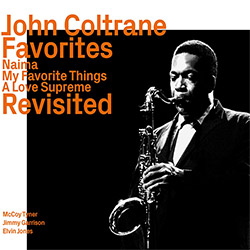
Well-recorded performances of Coltrane's most noted works--"Naima", "My Favorite Things" and "A Love Supreme"--in superb concerts from Berlin in 1963 and Antibes in 1965 with his classic quartet of pianist McCoy Tyner, bassist Jimmy Garrison and drummer Elvin Jones, revealing the expansion and freedom these compositions receive through the flexibility of live performance.
In Stock
Quantity in Basket: None
Log In to use our Wish List
Shipping Weight: 3.00 units
EU & UK Customers:
Discogs.com can handle your VAT payments
So please order through Discogs
Sample The Album:
John Coltrane-tenor saxophone, soprano saxophone
McCoy Tyner-piano
Jimmy Garrison-double bass
Elvin Jones-drums
Click an artist name above to see in-stock items for that artist.
UPC: 752156113423
Label: ezz-thetics by Hat Hut Records Ltd
Catalog ID: ezz-thetics 1134
Squidco Product Code: 31984
Format: CD
Condition: New
Released: 2022
Country: Switzerland
Packaging: Cardboard Gatefold
Tracks 1 and 2 recorded live in Berlin, Germany, on November 2nd, 1963, by Rodgers-Hammerstein.
Tracks 3-6 recorded live in Antibes - Juan-les-Pins, France, on July 26th, 1965.
"John William Coltrane played his final concert performance on April 23, 1967, at the Olatunji Center of African Culture in New York City. A final partial studio date took place twenty-four days later; the results lamentably lost to a fire. Two months after that, to the day, Coltrane succumbed to liver cancer. The saxophonist's abundantly documented output became both fixed and finite; the privilege to witness him in-person forever extinguished.
Fortunately, Coltrane experienced cumulative opportunities to play for thousands of people prior to his passing. From his Philadelphia beginnings as a nineteen-year-old section player in drummer Jimmy Johnson's band, through formative sideman dates with Dizzy Gillespie, Earl Bostic, and Johnny Hodges, and on to celebrated tenures with Miles Davis and Thelonious Monk, dovetailing with steady and prolific endeavors as a bandleader, Coltrane stayed intensely busy in concert contexts. Larger popularity in the public consciousness was comparatively gradual, but as with his approaches to practice and innovation, patience paid off.
Conventional consensus contends that none of the concert recordings that Coltrane left behind palpably match the magnitude of combined sensory magnificence that he and his colleagues could muster in the flesh. All that remains are partial facsimiles. Air shots, bootlegs, label-sanctioned albums, and rehearsals along with preciously scant footage. The provenances of the recordings are profuse and varied. So are the limitations, ranging from the minor intrusions of audience and venue noise to barely serviceable means of documentation and preservation.
The studio side of Coltrane's catalog has greater consistency in terms of caliber of aural presentation, but fewer occasions for extended improvisation and creation. This is particularly evident in an analysis of the recordings made of his Classic Quartet comprising pianist McCoy Tyner, bassist Jimmy Garrison and drummer Elvin Jones. An ensemble that was a work in progress well before it was a finished cohort, Coltrane's most fertile band was also best suited to the hot house environment of audience-attendant performance. Most commonly clubs, with formal concert and festival stages intermittently included.
Selecting favorites from this inventory can involve any number of criteria, but the tally is a subjective one. Producer Werner X. Uehlinger chose the three performances for this survey with straight-forward motives in mind. "Naima" is his preferred piece on Giant Steps, Coltrane's 1960 debut for Atlantic Records. "My Favorite Things" holds his esteem for the saxophonist's fealty to the song's original melody. Coltrane forgoes the temptation to turn the tune into a contrafact and surprises instead by how he tailors it to the specific tonal properties of his straight horn. Both pieces received definitive renditions at the quartet's November 1963 Berlin concert.
Named after Coltrane's first wife, "Naima" is among the saxophonist's most intimately affecting ballads. The Berlin version adds uplifting ardor into the amorous ode, shifting from Coltrane's tender theme statement to an incandescent Tyner solo skirted first by Jones' beneficent brushes, then crashing sticks. Garrison is mostly an undulating pulse, and Coltrane's solo emanates cascading, coruscating patterns. A plenteous humanity pervades, with a return to pellucid placidity in the resplendent resolution.
Advancements articulated on Giant Steps signaled a magnification of Coltrane's significance to musicians, but it was the title piece to the subsequent My Favorite Things that found exponential purchase with the listening public. Coltrane's modal variation on Richard Rogers' technicolor paean to positivity opened inclusive avenues of extended jazz improvisation still clearly informed by melody and harmony.
In Berlin, Tyner is again central to the early momentum and development of the piece. Parallels to intricate raga structures are superficial, but still intimated in the diversity of melodic permutations pursued and construed by the band. The nasal-ized nature of Coltrane's soprano clarifies into a burnished Bedouin intensity as he returns repeatedly to the central motif, torquing it from elongated striations to comparatively cleanly stated component tones, eventually moving off-mic and back on as Jones' drums swirl and eddy around him. Tyner again serves as harmonic rudder with an answering and framing ostinato heralding the inevitable recovery of the theme.
Long believed the only complete concert iteration of "A Love Supreme" extant as a recording, the quartet's rendition from July 1965 at Antibes has since lost this distinction with the commercial appearance last year of another rendition captured in a Seattle club two months later and quite distinct from its studio and stage predecessors. Uehlinger prefers Antibes to the studio version foremost because of the difference in marshaled energy. This is especially evident in the realization of the suite's penultimate part, "Pursuance," where Coltrane and Jones converge in a titanic duet that builds to vital, Vesuvian release and presages another personnel sea change on the horizon.
By early 1966, Tyner and Jones were absent the roster, replaced by Alice Coltrane and Rashied Ali. Coltrane redoubled his commitment to mapping freer regions of improvision through these fresh associations. "Naima" and "My Favorite Things" were still part of the songbook and the often-augmented band even revisited the opening invocation of "A Love Supreme" at its Olatunji appearance, but these new renderings felt like far flung descendants indicative of the evolution that had ensued in the intervening months. Coltrane's ever-germinating argot appeared immune to curtailment or abbreviation. Mortality arrived as a calamitous corrective to that idealistic perception. And yet the instrumental vernacular Coltrane constructed persists, not only in collective memory, but through the innumerable musicians informed by the capacious repository of erudition that he left behind."-Derek Taylor, April 2022
Artist Biographies
• Show Bio for John Coltrane "John Coltrane, in full John William Coltrane, byname Trane, (born September 23, 1926, Hamlet, North Carolina, U.S.-died July 17, 1967, Huntington, New York), American jazz saxophonist, bandleader, and composer, an iconic figure of 20th-century jazz.John Coltrane, 1966. Coltrane's first musical influence was his father, a tailor and part-time musician. John studied clarinet and alto saxophone as a youth and then moved to Philadelphia in 1943 and continued his studies at the Ornstein School of Music and the Granoff Studios. He was drafted into the navy in 1945 and played alto sax with a navy band until 1946; he switched to tenor saxophone in 1947. During the late 1940s and early '50s, he played in nightclubs and on recordings with such musicians as Eddie ("Cleanhead") Vinson, Dizzy Gillespie, Earl Bostic, and Johnny Hodges. Coltrane's first recorded solo can be heard on Gillespie's "We Love to Boogie" (1951). Coltrane came to prominence when he joined Miles Davis's quintet in 1955. His abuse of drugs and alcohol during this period led to unreliability, and Davis fired him in early 1957. He embarked on a six-month stint with Thelonious Monk and began to make recordings under his own name; each undertaking demonstrated a newfound level of technical discipline, as well as increased harmonic and rhythmic sophistication. During this period Coltrane developed what came to be known as his "sheets of sound" approach to improvisation, as described by poet LeRoi Jones (later Amiri Baraka): "The notes that Trane was playing in the solo became more than just one note following another. The notes came so fast, and with so many overtones and undertones, that they had the effect of a piano player striking chords rapidly but somehow articulating separately each note in the chord, and its vibrating subtones." Or, as Coltrane himself said, "I start in the middle of a sentence and move both directions at once." The cascade of notes during his powerful solos showed his infatuation with chord progressions, culminating in the virtuoso performance of "Giant Steps" (1959). Coltrane's tone on the tenor sax was huge and dark, with clear definition and full body, even in the highest and lowest registers. His vigorous, intense style was original, but traces of his idols Johnny Hodges and Lester Young can be discerned in his legato phrasing and portamento (or, in jazz vernacular, "smearing," in which the instrument glides from note to note with no discernible breaks). From Monk he learned the technique of multiphonics, by which a reed player can produce multiple tones simultaneously by using a relaxed embouchure (i.e., position of the lips, tongue, and teeth), varied pressure, and special fingerings. In the late 1950s, Coltrane used multiphonics for simple harmony effects (as on his 1959 recording of "Harmonique"); in the 1960s, he employed the technique more frequently, in passionate, screeching musical passages. Coltrane returned to Davis's group in 1958, contributing to the "modal phase" albums Milestones (1958) and Kind of Blue (1959), both considered essential examples of 1950s modern jazz. (Davis at this point was experimenting with modes-i.e., scale patterns other than major and minor.) His work on these recordings was always proficient and often brilliant, though relatively subdued and cautious. After ending his association with Davis in 1960, Coltrane formed his own acclaimed quartet, featuring pianist McCoy Tyner, bassist Jimmy Garrison, and drummer Elvin Jones. At this time Coltrane began playing soprano saxophone in addition to tenor. Throughout the early 1960s Coltrane focused on mode-based improvisation in which solos were played atop one- or two-note accompanying figures that were repeated for extended periods of time (typified in his recordings of Richard Rodgers and Oscar Hammerstein's "My Favorite Things"). At the same time, his study of the musics of India and Africa affected his approach to the soprano sax. These influences, combined with a unique interplay with the drums and the steady vamping of the piano and bass, made the Coltrane quartet one of the most noteworthy jazz groups of the 1960s. Coltrane's wife, Alice (also a jazz musician and composer), played the piano in his band during the last years of his life. During the short period between 1965 and his death in 1967, Coltrane's work expanded into a free, collective (simultaneous) improvisation based on prearranged scales. It was the most radical period of his career, and his avant-garde experiments divided critics and audiences. Coltrane's best-known work spanned a period of only 12 years (1955-67), but, because he recorded prolifically, his musical development is well-documented. His somewhat tentative, relatively melodic early style can be heard on the Davis-led albums recorded for the Prestige and Columbia labels during 1955 and '56. Thelonious Monk and John Coltrane (1957) reveals Coltrane's growth in terms of technique and harmonic sense, an evolution further chronicled on Davis's albums Milestones and Kind of Blue. Most of Coltrane's early solo albums are of a high quality, particularly Blue Train (1957), perhaps the best recorded example of his early hard bop style (see bebop). Recordings from the end of the decade, such as Giant Steps (1959) and My Favorite Things (1960), offer dramatic evidence of his developing virtuosity. Nearly all of the many albums Coltrane recorded during the early 1960s rank as classics; A Love Supreme (1964), a deeply personal album reflecting his religious commitment, is regarded as especially fine work. His final forays into avant-garde and free jazz are represented by Ascension and Meditations (both 1965), as well as several albums released posthumously." ^ Hide Bio for John Coltrane • Show Bio for McCoy Tyner "McCoy Tyner, in full Alfred McCoy Tyner, also called Sulaimon Saud, (born December 11, 1938, Philadelphia, Pennsylvania, U.S.), American jazz pianist, bandleader, and composer, noted for his technical virtuosity and dazzling improvisations.McCoy Tyner. Tyner began performing with local jazz ensembles while in his mid-teens. He met saxophonist John Coltrane in 1955 and, after a brief stint (1959) with a group led by Art Farmer and Benny Golson, helped Coltrane form his renowned quartet in 1960. Tyner developed his signature strong pentatonic chord-playing style and lightning-fast runs during his years with Coltrane. In addition, the group began incorporating elements of African and other musical genres into their playing style. Striking out on his own in 1965, Tyner led a variety of ensembles (for many years including bassist Ron Carter) and also worked solo and extensively as a sideman. From the mid-1980s he performed largely in a trio, but he also formed a big band that made occasional appearances. Tyner made dozens of recordings in his own name and contributed to dozens more. Notable among his own albums are The Real McCoy (1967), Sahara (1972), 4 × 4 (1980), and Infinity (1995) and, with his big band, Uptown/Downtown (1988). Tyner converted to Islam in the mid-1950s and adopted the name Sulaimon Saud." ^ Hide Bio for McCoy Tyner • Show Bio for Jimmy Garrison "James Emory Garrison (March 3, 1934 Š April 7, 1976) was an American jazz double bassist. He is best remembered for his association with John Coltrane from 1961 to 1967. Garrison was raised in both Miami, Florida and Philadelphia where he learned to play bass. Garrison came of age in the midst of a thriving Philadelphia jazz scene that included fellow bassists Reggie Workman and Henry Grimes, pianist McCoy Tyner and trumpeter Lee Morgan. Between 1957 and 1962, Garrison played and recorded with trumpeter Kenny Dorham; clarinetist Tony Scott; drummer Philly Joe Jones; and saxophonists Bill Barron, Lee Konitz, and Jackie McLean, as well as Curtis Fuller, Benny Golson, Lennie Tristano, and Pharoah Sanders, among others. In 1959 he first appeared on record with Ornette Coleman on "Art of the Improvisers" (Atlantic, 1959). He continued to work with many leaders, including Walter Bishop, Jr., Coleman, Dorham, and Cal Massey for the next two years. He formally joined Coltrane's quartet in 1962, replacing Workman. The long trio blues "Chasin' the Trane" is probably his first recorded performance with Coltrane and Elvin Jones. Garrison performed on many classic Coltrane recordings, including A Love Supreme. In concert with Coltrane, Garrison would often play unaccompanied improvised solos, sometimes as the prelude to a song before the other musicians joined in. After John Coltrane's death, Garrison worked and recorded with Alice Coltrane, Hampton Hawes, Archie Shepp, Clifford Thornton and groups led by Elvin Jones. Garrison also had a long association with Ornette Coleman, first recording with him on Ornette on Tenor and appeared on the outtake compilation Art of the Improvisers. He and drummer Elvin Jones have been credited with eliciting more forceful playing than usual from Coleman on the albums New York Is Now! and Love Call. In 1971 and 1972, Garrison taught as a Visiting Artist at Wesleyan University and Bennington College. Jimmy Garrison had four daughters and a son. Garrison and his first wife Robbie had daughters Lori, Joy and Robin. Then later with his second wife, Italy-based dancer and choreographer Roberta Escamilla Garrison, came Maia Claire and Matthew. Matthew, Joy and Maia Claire are accomplished artists in their own right. Matthew Garrison is a bass guitar player and the founder/owner of ShapeShifter Lab in Brooklyn, NY. He has performed and recorded with Joe Zawinul, Chaka Khan, The Saturday Night Live Band, John McLaughlin, Joni Mitchell, Herbie Hancock, Steve Coleman, Whitney Houston, Pino Daniele, John Scofield, Paul Simon, Tito Puente and many others. Joy Garrison sang alongside Barney Kessel, Cameron Brown, Tony Scott and many others. Maia Claire (Garrison-Trinn), former soloist with the dance troupe Urban Bush Women, currently works a Dance & Health Educator in Altamonte Springs, Florida. Jimmy Garrison died of lung cancer on April 7, 1976. His family legacy includes five grandchildren, Keith Owens, Glenda Rose Aiello, Benjamin Garrison, Lucas Garrison and Salif Alessandro Trinn. On June 25, 2019, The New York Times Magazine listed Jimmy Garrison among hundreds of artists whose material was reportedly destroyed in the 2008 Universal fire." ^ Hide Bio for Jimmy Garrison • Show Bio for Elvin Jones "Elvin Ray Jones (September 9, 1927 - May 18, 2004) was an American jazz drummer of the post-bop era. He showed an interest in drums at a young age, watching the circus bands march by his family's home in Pontiac, Michigan. He served in the United States Army from 1946 to 1949 and subsequently played in a Detroit house band led by Billy Mitchell. He moved to New York City in 1955 and worked as a sideman for Charles Mingus, Teddy Charles, Bud Powell and Miles Davis. From 1960 to 1966 he was a member of the John Coltrane quartet (along with Jimmy Garrison on bass and McCoy Tyner on piano), a celebrated recording phase, appearing on such albums as A Love Supreme. Following his work with Coltrane, Jones led several small groups, some under the name The Elvin Jones Jazz Machine. His brothers Hank Jones and Thad Jones were also jazz musicians with whom he recorded. He was inducted into the Modern Drummer Hall of Fame in 1995." ^ Hide Bio for Elvin Jones
7/1/2025
Have a better biography or biography source? Please Contact Us so that we can update this biography.
7/1/2025
Have a better biography or biography source? Please Contact Us so that we can update this biography.
7/1/2025
Have a better biography or biography source? Please Contact Us so that we can update this biography.
7/1/2025
Have a better biography or biography source? Please Contact Us so that we can update this biography.
Track Listing:
1. Naima 8:04
2. My Favorite Things 21:03
3. A Love Supreme: Acknowledgements 5:51
4. A Love Supreme: Resolution 11:35
5. A Love Supreme: Pursuance 21:34
6. A Love Supreme: Psalm 8:18
Hat Art
Improvised Music
Jazz
Free Improvisation
Quartet Recordings
Jazz Reissues
Staff Picks & Recommended Items
New in Improvised Music
Jazz & Improvisation Based on Compositions
Search for other titles on the label:
ezz-thetics by Hat Hut Records Ltd.


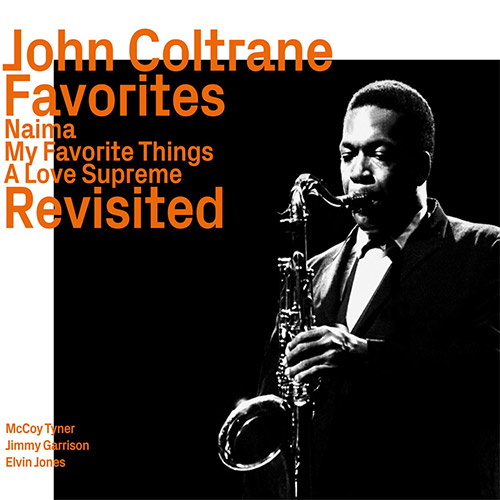


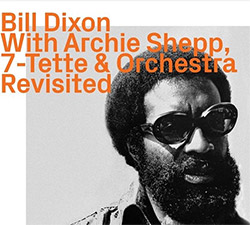



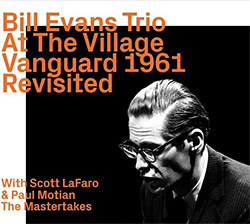
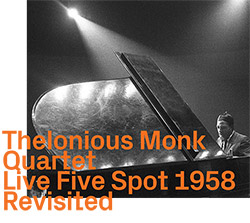
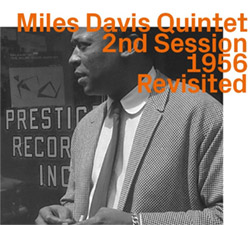

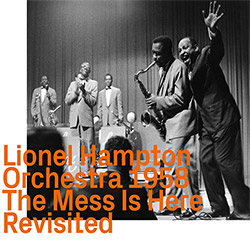
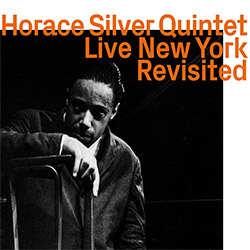
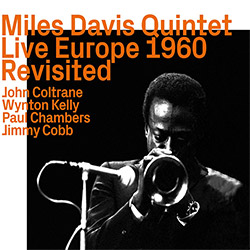




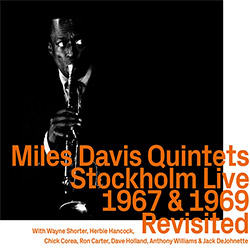




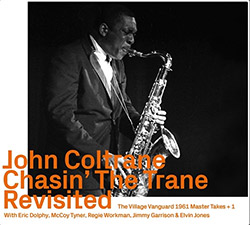
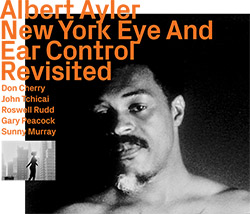
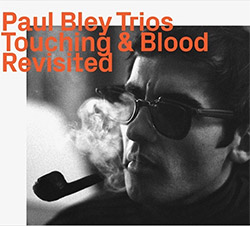
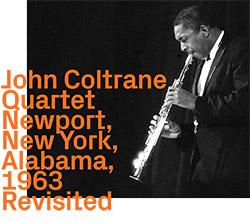










![Deupree, Jerome / Sylvie Courvoisier / Lester St. Louis / Joe Morris: Canyon [2 CDs]](https://www.teuthida.com/productImages/misc4/36404.jpg)


![Eternities: Rides Again [CASSETTE]](https://www.teuthida.com/productImages/misc4/36247.jpg)

![Lopez, Francisco: Untitled (2021-2022) [2 CDs]](https://www.teuthida.com/productImages/misc4/36438.jpg)




![Eventless Plot | Haarvol: The Subliminal Paths [CASSETTE + DOWNLOAD]](https://www.teuthida.com/productImages/misc4/36232.jpg)












![Eventless Plot | Francesco Covarino: Methexis [CASSETTE + DOWNLOAD]](https://www.teuthida.com/productImages/misc4/36231.jpg)



![Das B (Mazen Kerbaj / Mike Majkowski / Magda Mayas / Tony Buck): Love [VINYL]](https://www.teuthida.com/productImages/misc4/36329.jpg)



![Hemphill Stringtet, The: Plays the Music of Julius Hemphill [VINYL]](https://www.teuthida.com/productImages/misc4/36409.jpg)



![Halvorson, Mary Septet: Illusionary Sea [2 LPS]](https://www.teuthida.com/productImages/misc4/17952.jpg)






![Money : Money 2 [2 CDs]](https://www.teuthida.com/productImages/misc4/35894.jpg)




![Klinga, Erik: Elusive Shimmer [VINYL]](https://www.teuthida.com/productImages/misc4/36258.jpg)
![CHANGES TO blind (Phil Zampino): Volume 9 - I Wave on a Fine Vile Mist [CD + DOWNLOAD]](https://www.teuthida.com/productImages/misc4/36061.jpg)

![Wallmart / Rubbish: Asset Protection [split CD]](https://www.teuthida.com/productImages/misc4/35900.jpg)


![+Dog+: The Family Music Book Vol. 5 [2 CDs]](https://www.teuthida.com/productImages/misc4/35897.jpg)
![Kuvveti, Deli : Kuslar Soyledi [CASSETTE w/ DOWNLOAD]](https://www.teuthida.com/productImages/misc4/36107.jpg)

![Nakayama, Tetsuya: Edo Wan [CASSETTE w/ DOWNLOAD]](https://www.teuthida.com/productImages/misc4/36105.jpg)




![Yiyuan, Liang / Li Daiguo: Sonic Talismans [VINYL]](https://www.teuthida.com/productImages/misc4/35957.jpg)
![Brown, Dan / Dan Reynolds: Live At The Grange Hall [unauthorized][CASSETTE]](https://www.teuthida.com/productImages/misc4/36245.jpg)








![Palestine, Charlemagne / Seppe Gebruers: Beyondddddd The Notessssss [VINYL]](https://www.teuthida.com/productImages/misc4/36206.jpg)
![Palestine, Charlemagne / Seppe Gebruers: Beyondddddd The Notessssss [NEON GREEN VINYL]](https://www.teuthida.com/productImages/misc4/36207.jpg)

![Laubrock, Ingrid: Purposing The Air [2 CDs]](https://www.teuthida.com/productImages/misc4/35639.jpg)

![Yoko, Ono / The Great Learning Orchestra: Selected Recordings From Grapefruit [2 CDs]](https://www.teuthida.com/productImages/misc4/35841.jpg)









![Zorn, John / JACK Quartet: The Complete String Quartets [2 CDs]](https://www.teuthida.com/productImages/misc4/35609.jpg)

![Lonsdale, Eden: Dawnings [2 CDs]](https://www.teuthida.com/productImages/misc4/35480.jpg)



![Sorry For Laughing (G. Whitlow / M. Bates / Dave-Id / E. Ka-Spel): Rain Flowers [2 CDS]](https://www.teuthida.com/productImages/misc4/35985.jpg)

![Rolando, Tommaso / Andy Moor : Biscotti [CASSETTE w/ DOWNLOADS]](https://www.teuthida.com/productImages/misc4/36106.jpg)


![Electric Bird Noise / Derek Roddy: 8-10-22 [CD EP]](https://www.teuthida.com/productImages/misc4/35970.jpg)








![Elephant9 : Mythical River [VINYL]](https://www.teuthida.com/productImages/misc4/34624.jpg)



![Elephant9 with Terje Rypdal: Catching Fire [VINYL 2 LPs]](https://www.teuthida.com/productImages/misc4/35355.jpg)
![Deerlady (Obomsawin, Mali / Magdalena Abrego): Greatest Hits [VINYL]](https://www.teuthida.com/productImages/misc4/34876.jpg)







![Surplus 1980: Illusion of Consistency [CD]](https://www.teuthida.com/productImages/misc4/35069.jpg)
![Staiano, Moe: Away Towards the Light [VINYL + DOWNLOAD]](https://www.teuthida.com/productImages/misc4/35037.jpg)
![Coley, Byron: Dating Tips for Touring Bands [VINYL]](https://www.teuthida.com/productImages/misc4/17906.jpg)

![Lost Kisses: My Life is Sad & Funny [DVD]](https://www.teuthida.com/productImages/misc4/lostKissesDVD.jpg)